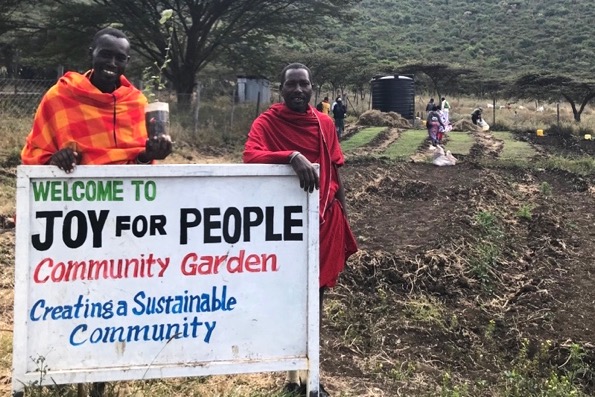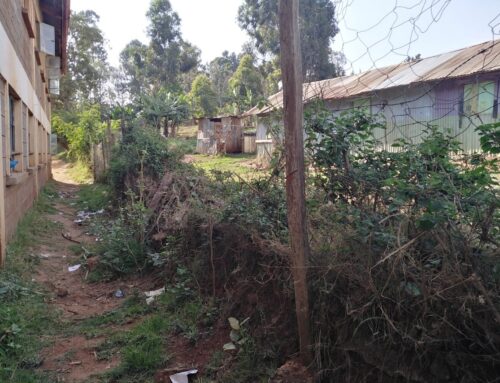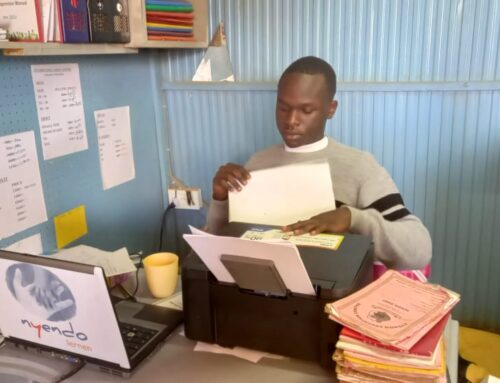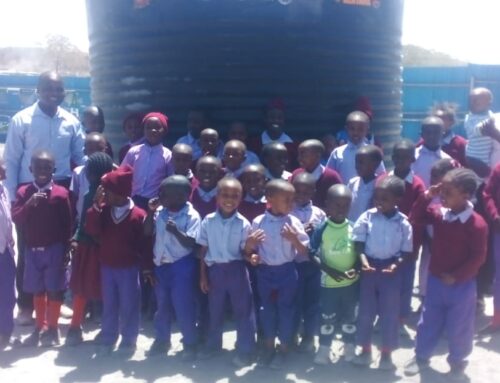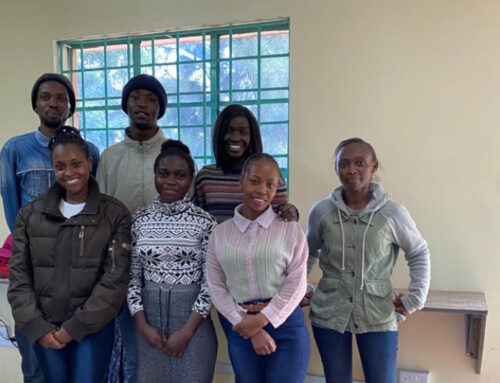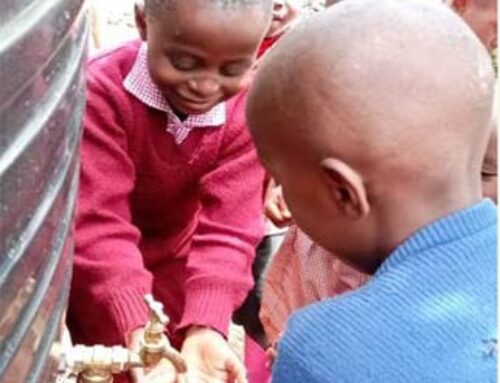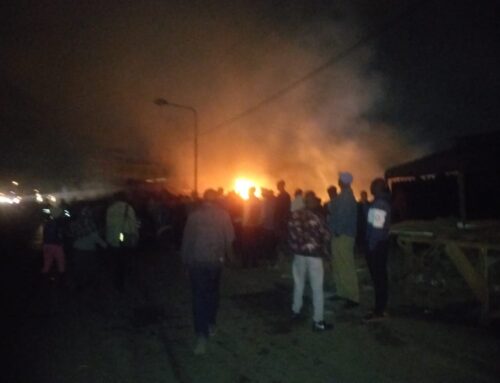Visiting our neighbors, the Massai
On September 1, 2020
By the time it was finally my turn to introduce myself, it was already 14.30 o‘clock. Our introduction to the Masai community on the south side of the Ngong Hills, about 35 km away from my Oseki farm, was supposed to last only 2 hours. But by the time us five guests, Simiyu, Felistas, Veronicah, Tonny and I, each of us had planted the trees we had brought with us in the Community Garden and then introduced ourselves to all 18 “leaders” of two CBOs – Community Based Organisations – in a community room not far from there, 4 hours had already passed.
Impressed and exhausted at the same time, I wanted to keep it short, but as soon as I started, I could not stop. I told them about my 30 years of encounter with Africa, my origins and what makes our cultures and societies different, where I believe our great opportunity and challenge lie. The words flowed in pictures and stories, accompanied by vivid facial expressions and gestures, the likes of which I had never seen in my best teaching days. My listeners literally sucked my deepest insights and most personal experiences out of me with their alert eyes, their laughter, amazement, clapping, their incredible “presence”. I sat down again, amazed and at the same time very satisfied with myself, and knew: Now we have met, now we are friends! This could be the beginning of something “big”. Not only because I let myself be carried away to open my heart wide, but above all because the previous speakers left such a strong impression.
Twelve years ago, three of them, Director Emanuel Millip Munkura, Secretary Geoffrey Tajeu Nkoitiko and Chairman Wilson Kamalyet Paramali, began to create the first CBO as a self-help group with the aim to meet their social and economic challenges better. For example, to ensure the schooling of children and the care of their widows, to prevent the circumcision of girls, and in general to stand up for the rights of women in their community. They know that as a cultural minority in a globalized world they have to change their habits, rethink some of their “taboos”. “We have to kill our taboo not to touch the soil”, explained the director and “we need to change our customs that women do not inherit.
This well-structured and disciplined non-profit association now has 700 members and has expanded with a second association. The members come from far-flung Masai communities and are organized in so-called clusters. Between 27 and 45 members belong to a cluster. Everyone pays a monthly contribution, from which different pots for school fees, for widows etc. are then fed. Late arrivals are fined, and every amount of money that is received and spent is recorded neatly in Excel tables. Each member is registered with photo, origin and affiliation.
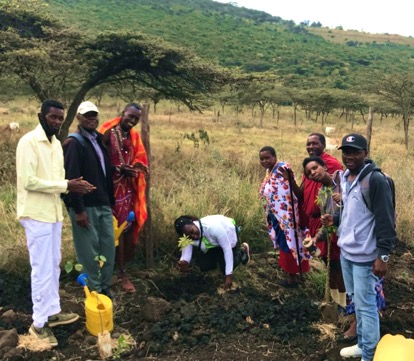
The cultivation of relationships has a high priority. Everyone introduces him/herself with his/her name and from which family he/she comes, the family is respected and the ancestors are honored. All come in Masai costume, although the four youth representatives have completed university studies or are still attending. A medical student, heavily clothed in the typical Masai jewelry, recites her own poem about female circumcision at the invitation of the director – in her own language of course. The director and two of the “leaders” have already been abroad several times and have given lectures at universities, among other places. The favorite topic and the special competence of the director, who freely admits not to have a school-leaving certificate, are questions about “leadership”. He talks about the values they hold high as Masai: Respect, responsibility and courage! Yes, leadership is above all about sharing common values. He offers to support our friends in the Kangemi Slum in their challenges to build their own organization.
Our new Masai friends have already been able to drill their own well with additional outside funds, install a solar pump and create a garden with many onions, irrigated with a so-called “dripping system”, a system of perforated hoses connected to the water tank. When they heard about our mobile/landless farming project, they were immediately interested. “Many of our young people have never held a gardening tool in their hands,” explained Director Emanuel.
There is a small clip of our encounter that you can watch here, have fun wachting!
Irmgard Wutte
You are currently viewing a placeholder content from YouTube. To access the actual content, click the button below. Please note that doing so will share data with third-party providers.
More Information
